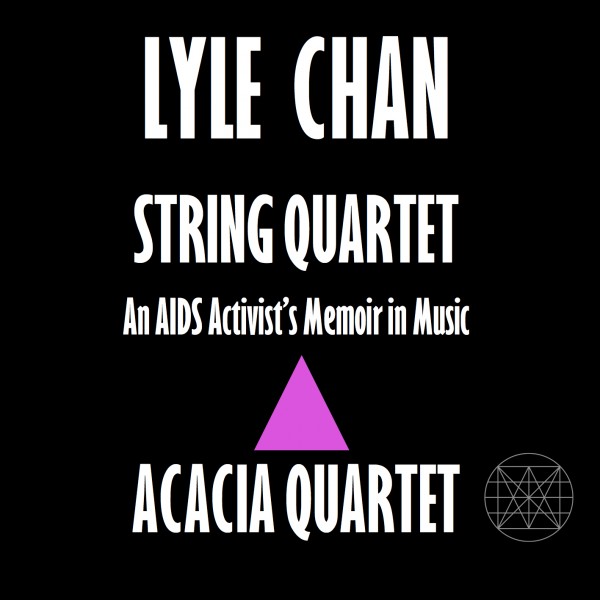String Quartet: An AIDS Activist’s Memoir
REVIEWS and ARTICLES
“Lyle Chan’s string quartet is a very ambitious work born out of a seemingly endless plague. Its composer has taken his experiences of living through the enormous tragedy of AIDS and from them has molded a serious and deeply felt work of art.” – John Corigliano
“Lyle Chan’s string quartet Mark and Adrian are her sons derived its subject matter from the personal circumstances of one of the composer’s adversaries during his years of AIDS activism. Drawn from a longer work, the sections played here moved from a shimmering radiant texture to a section of gentle raunch, closing with a melodic violin duo blending intense radiance and serenity as though modelled on moments from Beethoven’s late slow movements. – see complete article here: Sydney Morning Herald
This work is a memoir of composer Lyle Chan’s six years as an AIDS activist during the epidemic’s bleakest years in the 1990s. This work tells the story of how activists transformed a stigmatized, fatal disease. Like the autobiographical quartets of Steve Reich or Shostakovich, Lyle Chan’s AIDS memoir is in turn harrowing and touching but ultimately an intensely uplifting story of a community that fought against all odds for their lives and won.
|
To download the entire booklet as a FREE PDF, click HERE. To purchase the album as a DIGITAL DOWNLOAD, physical CD or to listen to it via a STREAMING SERVICE, click A book version of the memoir essays is coming soon. Concerts |
  |
“In the years 1991-1996 I was an AIDS activist. Those years were the height of the epidemic, but also the journey to the crisis’ end. I saw AIDS transformed from a frightening, near-universally fatal illness to what it is today, a chronic manageable condition. This transformation took place within a mere two decades of identifying HIV. In the history of medicine, there had never been progress made at such speed with a disease that was, frankly, so paralyzingly dazzling in its complexity.During those years, I’d given up music to be an activist. But a composer is always a composer. I did sketch a lot of music. The music were my diaries, a way of writing down feelings. As a composer I think of music as the sound that feelings make. Some twenty years after these events, I started turning the sketches into performable pieces of music, a process I imagine is the same as when someone turns diary entries into a memoir.Strictly speaking, the work is not what’s called program music, or music that depicts events or a narrative. Every now and there, there is some overt representation (the police whistles, for instance) but mostly it is music that I wrote when I was reflecting on the day’s events or even music to comfort myself. The best way to describe the music is to say it’s what got written at the time all these things were happening.”– from the introduction by the composer |